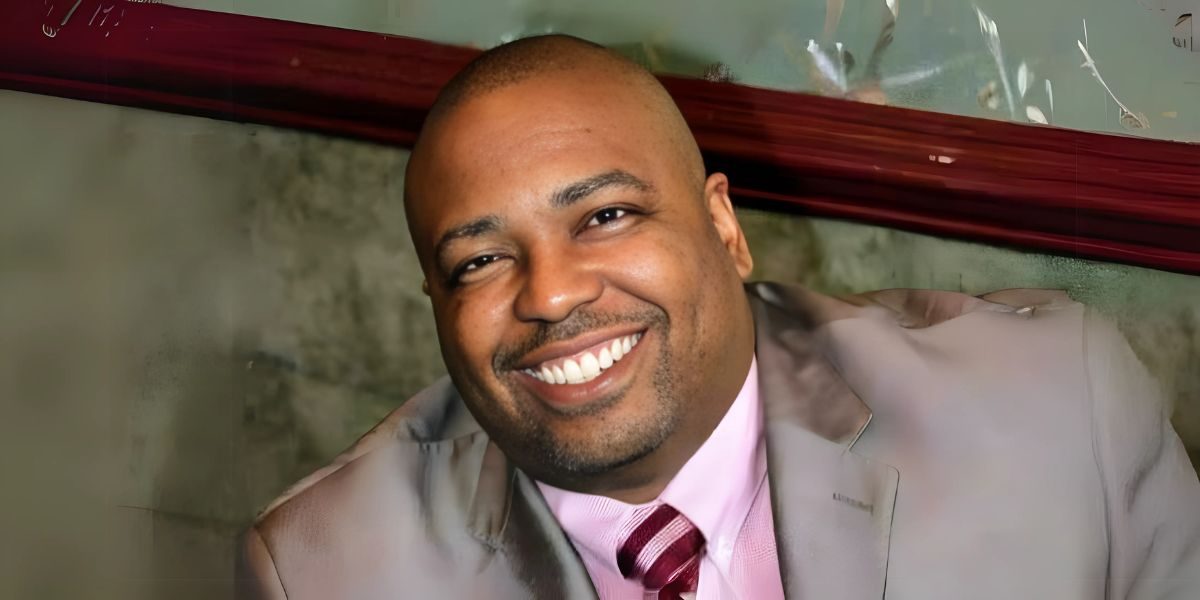By: Elowen Gray
Urban neighborhoods across the United States have long been impacted by a dense cross-wiring of socioeconomic forces, cultural determination, and systemic injustice. In cities like Harlem, especially during the 1980s and early 1990s, these forces frequently intersected in ways that created considerable challenges. The U.S. Department of Justice, as of 1988, reported that Black male youth homicide rates ages 18-24 increased 100 percent in the past decade, mostly in inner-city communities. Harlem, which was previously renowned for musical, artistic, and Black intellectual achievements, also faced housing instability, underfunded schools, and drug epidemics that placed severe strain on the community. For many residents, leaving was often viewed not only as a path to opportunity but also as a means of survival.
This is the backdrop to the life of Reverend Dr. Hiram Ratliff, Bronx pastor, educator, and writer, who grew up in Harlem during these difficult years. His new book, The Black and Beautiful Side of Us, is a collection of poetry exploring the complex emotional and social dynamics of his youth in a community shaped by both adversity and pride. Through poetry, Ratliff, who feared he would not live to thirty, explores survival, identity, and religion. The book was released on October 24, 2024, and includes poems such as Harlem, Africa, A New Me, and I Need, which reflect on themes of love, cultural affirmation, and personal transformation.
Ratliff began his studies at Hobart College in Geneva, New York, where he earned his Bachelor of Arts in English Studies with a Religious Studies minor in 1988. Writing began for him during these years, nurtured by a contemplative campus environment that contrasted sharply with his Harlem upbringing. He subsequently pursued graduate studies at New York Theological Seminary, where he obtained a Master of Professional Studies in Pastoral Counseling and a Master of Divinity. In 2022, Ratliff received his Doctorate in Ministry after defending a dissertation titled Guns and Roses, which encourages clergy to consider more direct roles in addressing gun violence in their communities.
Since 2011, Ratliff has served as Senior Pastor of New Tabernacle Baptist Church in the Bronx. He was formally installed as the church’s fifth pastor on October 24, 2011. Under his leadership, the church has hosted outreach events in West Farms, providing meals, clothing, medical screenings, and children’s activities to hundreds, sometimes over a thousand, individuals annually. These programs are part of a community-centered philosophy that has influenced Ratliff’s pastoral work. He also initiated youth workshops titled Check Urself B4 U Wreck Urself, bringing in a range of guest speakers including former NBA players, fraternity members, and authors to address topics such as personal growth, discipline, and life planning.
Beyond ministry, Ratliff has been engaged in civic and advocacy efforts. He was a member of Community Board 6 in the Bronx for several years, where he contributed to discussions surrounding the development of a shopping mall in the Fordham area. He has also collaborated with the Black Institute, a racial and economic justice group. In this capacity, Ratliff has participated in rallies and advocacy campaigns supporting wage increases for fast-food workers, municipal ID programs for undocumented immigrants, expanded pre-K access, and affordable housing. These efforts connect his local involvement to broader social policy discussions.
Ratliff’s professional experience includes work as a social worker, advocating for vulnerable youth and families. He has held supervisory roles in education and community programs focused on addressing poverty through a combination of educational support and social services. He currently serves in the Westchester County school district, where he works with students who face learning and behavioral challenges. His dual involvement in education and ministry highlights a holistic approach to community development that considers both individual well-being and systemic factors.
Additionally, Ratliff has contributed to educational governance through board membership. He served as part of a community outreach and leadership team for a local charter school that opened in September 2016. Ratliff played a role in student recruitment, a requirement outlined by the New York State Board of Education. He is also the current President of the Baptist Ministers’ Evening Conference of Greater New York and Vicinity, a role through which he engages with other clergy in the region on matters of pastoral leadership and service.
The release of The Black and Beautiful Side of Us was followed by a book signing ceremony on April 6, 2025, at New Tabernacle Baptist Church. Ratliff is also scheduled to appear at a Black Authors’ Symposium on August 2, 2025, in Sag Harbor. These events aim to share his work with broader audiences and communities that are drawn to themes of resilience, spirituality, and personal narrative.
Ratliff lives with his wife of 32 years, Deacon Maria-Antoinette Ratliff. He remains close with his mother, Luzella Ratliff, and his mother-in-law, Helen Jackson. His spiritual perspective is grounded in his favorite Bible verse, Romans 8:28: “And we know that in all things God works for the good of those who love him, who have been called according to his purpose.”
The journey and contributions of Reverend Dr. Hiram Ratliff illustrate how personal experience, faith, and education can converge in service of others. His life story, shaped by Harlem’s rich cultural history and informed by years of community engagement, offers insight into how individuals can navigate and influence the complex realities of urban life—through service, scholarship, and storytelling.

















